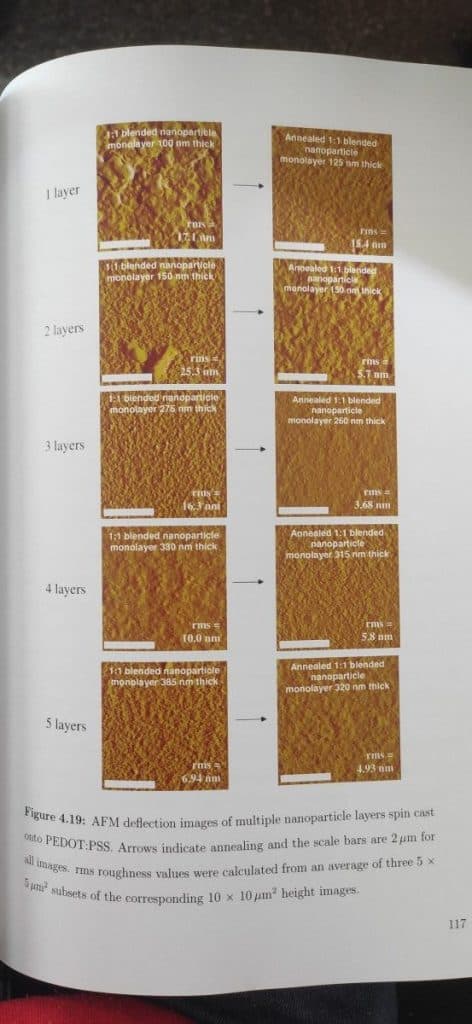

How long is a Thesis or Dissertation? [the data] PhD, Masters +
Writing a thesis for your undergraduate, master’s, or PhD can be a very daunting task. Especially when you consider how long a thesis can get. However, not all theses are the same length and the expected submission length is dependent on the level of study that you are currently enrolled in and the field in which you are studying.
An undergraduate thesis is likely to be about 20 to 50 pages long. A Master’s thesis is likely to be between 30 and 100 pages in length and a PhD dissertation is likely to be between 50 and 450 pages long.
In the table below I highlight the typical length of an undergraduate, master’s, and PhD.
It is important to note that this is highly dependent on the field of study and the expectations of your university, field, and research group.
If you want to know more about how long a Masters thesis and PhD dissertation is you can check out my other articles:
- How Long is a Masters Thesis? [Your writing guide]
- How long is a PhD dissertation? [Data by field]
- How to write a masters thesis in 2 months [Easy steps to start writing]
These articles go into a lot more detail and specifics of each level of study, including master’s and doctoral degrees.
Let’s take a more detailed look at the length of a thesis or dissertation. We’ll start from the very basics including what a dissertation or thesis really is.
What exactly is a thesis or a dissertation?
A thesis or a dissertation is a research project that is typically required of students in order to gain an advanced degree.
A dissertation is usually much longer and more detailed than a thesis, but they both involve extensive research and provide an in-depth analysis of their given subject.
Many people use the term interchangeably but quite often a Masters level research project results in a thesis. While a PhD research project results in a much longer dissertation.
Thesis work is usually completed over the course of several months and can require multiple drafts and revisions before being accepted. These will be looked over by your supervisor to ensure that you are meeting the expectations and standards of your research field.
PhD Dissertations are typically even more involved, taking years to complete. My PhD took me three years to complete but it is usual for them to take more than five years.
Both a thesis and a dissertation involve researching a particular topic, formulating an argument based on evidence gathered from the research, and presenting the findings in written form for review by peers or faculty members.
My Master’s thesis was reviewed by the chemistry Department whilst my PhD thesis was sent to experts in the field around the world.
Ultimately, these experts provide a commentary on whether or not you have reached the standards required of the University for admittance into the degree and the final decision will be made upon reviewing these comments by your universities graduation committee.
There are several outcomes including:
- accepted without changes – this is where you must make no changes to your thesis and is accepted as is.
- accepted with minor changes this is where your thesis will require some minor changes before being admitted to the degree. Usually, it is not sent back to the reviewers after the thesis defence.
- Major changes – this is where the committee has decided that you need to rework a number of major themes in your thesis and will likely want to see it at a later stage.
- Rejected – this is where the dissertation or thesis is rejected and the recommendation to downgrade your degree program is made.
What is the typical length of a thesis or dissertation?
The length of a thesis or dissertation varies significantly according to the field of study and institution, especially in social sciences.
Generally, an undergraduate thesis is between 20-50 pages long while a PhD dissertation can range from 90-500 pages in length.
However, longer is not necessarily better as a highly mathematical PhD thesis with proofs may only be 50 pages long.
It also depends on the complexity of the topic being studied and the amount of research required to complete it.
A PhD dissertation should contain as many pages and words as it takes to outline the current state of your field and provide adequate background information, present your results, and provide confidence in your conclusions. A PhD dissertation will also contain figures, graphs, schematics, and other large pictorial items that can easily inflate the page count.
Here is a boxplot summary of many different fields of study and the number of pages of a typical PhD dissertation in the field, including social sciences. It has been created by Marcus Beck from all of the dissertations at the University of Minnesota.

Typically, the mathematical sciences, economics, and biostatistics theses and dissertations tend to be shorter because they rely on mathematical formulas to provide proof of their results rather than diagrams and long explanations.
On the other end of the scale, English, communication studies, political science, history and anthropology are often the largest theses in terms of pages and word count because of the number of words it takes to provide proof and depth of their results.
At the end of the day, it is important that your thesis gets signed off by your review committee and other experts in the field. Your supervisor will be the main judge of whether or not your dissertation is capable of satisfying the requirements of a master’s or doctoral degree in your field.
How Many Pages Should a Master or PhD Thesis Have? Length of a thesis?
The length of a master’s thesis can vary greatly depending on the subject and format.
Generally, a masters thesis is expected to be around 100 pages long and should include:
- a title page,
- table of contents,
- introduction,
- literature review,
- main test and body of work,
- discussions and citations,
- conclusion,
- bibliography
- and (sometimes) appendix.
Your supervisor should provide you with a specific format for your dissertation or thesis that you are expected to follow.
Depending on your field of study and the word count specified by your supervisor, these guidelines may change. The student must ask their advisor for examples of past student thesis and doctoral dissertations.
For example, if there is a limited number of words allowed in the thesis then it may not be possible to have 100 pages or more for the thesis.
Additionally, if you are including a lot of technical information such as diagrams or tables in the appendix of your dissertation or thesis, then this could increase the page count as well. For example, my PhD thesis contained a page like the one below.
This page only contains images from atomic force microscopy. Because my PhD was very visual, many pages like this exist.

Ultimately it is important to consult with your supervisor and determine how many pages your master’s thesis or PhD dissertation will be expected to have.
How long does it take to write a graduate thesis? Write your thesis quickly
Writing a graduate thesis can be a daunting task.
It is typically expected to take anywhere from one to three years, depending on the subject and scope of the project.
However, this is not just writing. A typical thesis or dissertation will require you to:
- formulate a research question
- do a literature review
- create research methodology
- perform original research
- collect and analyse results
- write peer-reviewed research papers
- write a PhD/masters thesis
- submit thesis and respond to examiners comments.
The actual writing component of a thesis or dissertation can take anywhere from one month to 6 months depending on how focused the PhD student is.
The amount of time it takes to write a thesis or dissertation can vary based on many factors, such as the type of research required, the length of the project, and other commitments that may interfere with progress.
Some students may have difficulty focusing or understanding their topic which can also add to the amount of time it takes to complete the project.
Regardless, writing a thesis is an important part of obtaining a graduate degree and should not be taken lightly.
It requires dedication and determination in order for one to successfully complete a thesis or dissertation within an appropriate timeframe.
In my YouTube video, below, I talk about how to finish your thesis or dissertation quickly:
It is full of a load of secrets including owning your day, managing your supervisor relationship, setting many goals, progress over perfection, and working with your own body clock to maximise productivity.
Wrapping up
This article has been through everything you need to know about the typical length of a dissertation or thesis.
The answer to this question is highly dependent on your field of study and the expectations of your supervisor and university.
Frequently Asked Questions: How Long is a Thesis
How long is a thesis.
A thesis is typically a document submitted in support of an academic degree, presenting the author’s research and findings. The length of a thesis can vary depending on the level of study and specific requirements of the institution. It can range from 60 – 100 pages for a master’s thesis to several hundred pages for a doctoral dissertation.
What is the difference between a thesis and a dissertation?
While the terms thesis and dissertation are often used interchangeably, they can have different meanings depending on the region or academic context. In some countries, a thesis is associated with a bachelor’s or master’s degree, while a dissertation is typically required for a doctoral degree.
Is there a specific word count for a thesis?
While there is no universal word count for a thesis , institutions may provide guidelines on the expected length based on the type of degree and academic discipline. It’s essential to adhere to the specified word count to meet academic standards.
How does the length of a thesis vary across different fields of study?
The length of a thesis can differ based on the field of study and the nature of the research being conducted. For example, a thesis in the social sciences may be shorter compared to one in a scientific or technical field that requires extensive data analysis and documentation.

Dr Andrew Stapleton has a Masters and PhD in Chemistry from the UK and Australia. He has many years of research experience and has worked as a Postdoctoral Fellow and Associate at a number of Universities. Although having secured funding for his own research, he left academia to help others with his YouTube channel all about the inner workings of academia and how to make it work for you.
Thank you for visiting Academia Insider.
We are here to help you navigate Academia as painlessly as possible. We are supported by our readers and by visiting you are helping us earn a small amount through ads and affiliate revenue - Thank you!

2024 © Academia Insider

- Have your assignments done by seasoned writers. We work 24/7. Just email us at:
- [email protected]

How Long is a Thesis or Dissertation: College, Grad or PhD

How long is a thesis
As a graduate student, you may have heard that you must complete a certain comprehensive project, either a thesis or a dissertation. In this guide, we will explore how long a thesis should be, the best length for a dissertation, and the optimal length for each part of the two.
If you read on to the end, we will also explore their differences to understand how it informs each length.
Both terms have distinct meanings, although they are sometimes used interchangeably and frequently confused.

Structure-wise, both papers have an introduction, a literature review, a body, a conclusion, a bibliography, and an appendix. That aside, both papers have some differences, as we shall see later on in this article.
How Long Should a Thesis be
Before discussing how long a thesis is, it’s critical to understand what it is. A thesis is a paper that marks the end of a study program.
Mostly, there is the undergraduate thesis, a project that marks the end of a bachelor’s degree, and a master’s thesis that marks the end of a master’s program.
A thesis should be around 50 pages long for a bachelor’s degree and 60-100 pages for a Master’s degree. However, the optimal length of a thesis project depends on the faculty’s instructions and the supervising professor’s expectations . The length also depends on the topic’s technicalities and the extent of research done.

A master’s thesis project is longer because it is a compilation of all your knowledge obtained in your master’s degree.
It basically allows you to demonstrate your abilities in your chosen field.
Often, graduate schools require students pursuing research-oriented degrees to write a thesis.
This is to demonstrate their practical skills before completing their degrees.
In contrast to undergraduate thesis, which are shorter in length and coverage area, usually less than 60 pages. A master’s theses are lengthy scholarly work allowing you to research a topic deeply.
Then you are required to write, expand the topic, and demonstrate what you have learned throughout the program. This is part of why you must write a thesis for some undergrad in some of the courses.
A Master’s thesis necessitates a large amount of research, which may include conducting interviews, surveys, and gathering information ( both primary and secondary) depending on the subject and field of study.
For this reason, the master’s thesis has between 60 and 100 pages, without including the bibliography. Mostly, the topic and research approach determine the length of the paper.
This means that there is no definite number of pages required. However, your thesis should be long enough to clearly and concisely present all important information.
Need Help with your Homework or Essays?
How long should a dissertation be.
A dissertation is a complex, in-depth research paper usually written by Ph.D. students. When writing the dissertation, Ph.D. Students are required to create their research, formulate a hypothesis, and conduct the study.
On average, a dissertation should be at least 90 pages at the minimum and 200 pages at the maximum , depending on the guidelines of the faculty and the professor. The optimal length for a dissertation also depends on the depth of the research done, the components of the file, and the level of study.

Most Ph.D. dissertations papers are between 120 to 200 pages on average.
However, as we said earlier, it all depends on factors like the field of study, and methods of data collection, among others.
Unlike a master’s thesis, which is about 100 pages, a dissertation is at least twice this length.
This is because you must develop a completely new concept, study it, research it, and defend it.
In your Ph.D. program, a dissertation allows you the opportunity to bring new knowledge, theories, or practices to your field of study.
The Lengths of Each Part of a Thesis and Dissertation
Factors determining the length of thesis or dissertation.
As we have seen, there is no definite length of a thesis and dissertation. Most of these two important academic documents average 100 to 400 pages. However, several factors determine their length.

Universities- we all know universities are independent bodies. Also, it’s important to know that each university is different from the other. As a result, the thesis and dissertation length varies depending on the set rules in a certain college or school.
Field of study- some fields of study have rich information, while others have limited information.
For example, you may have much to write about or discover when it comes to science compared to history.
As such, if you are to write a thesis or a dissertation in both fields, one will definitely be longer than the other. Check the time it takes to write a thesis or a dissertation to get more points.
Other factors that affect the length of a thesis or a dissertation include your writing style and the instructor’s specifications. These factors also come into play when it comes to the time taken to defend a thesis or your dissertation.
Tips for the Optimal Length for a Thesis or Dissertation
Instead of writing for length, write for brevity. The goal is to write the smallest feasible document with all of the material needed to describe the study and back up the interpretation. Ensure to avoid irrelevant tangents and excessive repetitions at all costs.
The only repetition required is the main theme. The working hypothesis seeks to be elaborated and proved in your paper.
The theme is developed in the introduction, expanded in the body, and mentioned in the abstract and conclusion.
Here are some tips for writing the right length of thesis and dissertation:
- Remove any interpretation portion which is only tangentially linked to your new findings.
- Use tables to keep track of information that is repeated.
- Include enough background information for the reader to understand the point of view.
- Make good use of figure captions.
- Let the table stand on its own. I.e., do not describe the contents of the figures and/or tables one by one in the text. Instead, highlight the most important patterns, objects, or trends in the figures and tables in the text.
- Leave out any observations or results in the text that you haven’t provided data.
- Do not include conclusions that aren’t backed up by your findings.
- Remove all inconclusive interpretation and discussion portions.
- Avoid unnecessary adjectives, prepositional phrases, and adverbs.
- Make your sentences shorter – avoid nesting clauses or phrases.
- Avoid idioms and instead use words whose meaning can be looked up in a dictionary.
We can Write your Papers! No Plagiarism
Get that A on your next essay assignment without the hassles. Any topic or subject. 100% Plagiarism-Free Essays.
Difference between a Thesis and a Dissertation

The most basic distinction between a thesis and a dissertation is when they are written.
While a thesis is a project completed after a master’s program, a dissertation is completed at the end of doctorate studies.
In a thesis, you present the results of your research to demonstrate that you have a thorough understanding of what you have studied during your master’s program.
On the other hand, a dissertation is your chance to add new knowledge, theories, or practices to your field while pursuing a doctorate. The goal here is to come up with a completely new concept, develop it, and defend it.
A master’s thesis is similar to the types of research papers you’re used to writing in your bachelor’s studies. It involves conducting research on a topic, analyzing it, and then commenting on your findings and how it applies to your research topic.
The thesis aims to demonstrate your capacity to think critically about and explain a topic in depth.
Furthermore, with a thesis, you typically use this time to elaborate on a topic that is most relevant to your professional area of specialization that you intend to pursue.
In a dissertation, on the other hand, you use other people’s research as an inspiration to help you come up with and prove your own hypothesis, idea, or concept. The majority of the data in a dissertation is credited to you.
Last but not least, these two major works differ greatly in length. The average length of a master’s thesis is at least 100 pages.
On the other hand, a doctoral dissertation should be substantially longer because it includes a lot of history and research information, as well as every element of your research, while explaining how you arrived at the information.
It is a complex piece of scholarly work, and it is likely to be twice or thrice the length of a thesis. To know the difference, check the best length for a thesis paper and see more about it.
Here is a Recap of the Differences
- While the thesis is completed at the end of your master’s degree program, a dissertation is written at the end of your doctoral degree program.
- Both documents also vary in length. A thesis should have at least 100 pages, while a doctoral dissertation is longer (over 200 pages)
- In the thesis, you conduct original research; in the dissertation, you use existing research to help you develop your discovery.
- For a thesis, you have to add analysis to the existing work, while a dissertation is part of the analysis of the existing work.
- In comparison to a thesis, a dissertation requires a more thorough study to expand your research in a certain topic.
- The statements in a thesis and a dissertation are distinct. While a thesis statement explains to readers how you will prove an argument in your research, a dissertation hypothesis defines and clarifies the outcomes you expect from your study. Here, you apply a theory to explore a certain topic.
- A dissertation allows you to contribute new knowledge to your field of study, while a thesis makes sure you understand what you have studied in your program and how it applies.
A thesis or a dissertation is a difficult document to compile. However, you should not be worried since your school assigns you a dissertation advisor who is a faculty member.
These advisors or supervisors help you find resources and ensure that your proposal is on the right track when you get stuck.
Check out my guide on the differences between a research paper, proposal, and thesis to understand more about these issues.

Josh Jasen or JJ as we fondly call him, is a senior academic editor at Grade Bees in charge of the writing department. When not managing complex essays and academic writing tasks, Josh is busy advising students on how to pass assignments. In his spare time, he loves playing football or walking with his dog around the park.
Related posts

caught buying dissertations
Avoid being Caught Buying Dissertations: Tips to Do it Right

Do Dissertation writing services work
Do Dissertation Writing services work? Is hiring someone Legal

Time needed to write your thesis
Time to Write a Thesis or Dissertation: Tips to Finish Fast

How Long Is a Master’s Thesis? 5 Tips on Writing and Structuring Yours
- Natasa Pantelic
- November 10, 2023

Writing a Master’s thesis is a significant academic endeavor. It marks the culmination of graduate studies, showcasing your ability to conduct comprehensive research and present your findings coherently , also be sure to check out best places for you where to study abroad .
Knowing about the typical length of a Master’s thesis and how to structure it effectively is crucial for a successful submission. This article will guide you through understanding the expected length, how to structure your thesis, and tips to manage your writing process efficiently.
Typical Length Variations

The length of a Master’s thesis can vary significantly depending on the subject matter, the specific requirements of your academic institution, and your research topic.
Generally, a Master’s thesis is between 40 to 80 pages in humanities and social sciences but can be longer in more technical fields like engineering or natural sciences. It’s crucial to check with your department for specific guidelines.
For expert guidance and tailored assistance in crafting your master’s thesis, consider exploring the resources available at thesisrush.com , a platform dedicated to helping students excel in their academic writing endeavors.
Factors Influencing Thesis Length
Several factors can influence the length of your Master’s thesis:
- Research Depth: More complex research projects may require a more detailed explanation and analysis.
- Academic Field: Technical fields often have longer theses due to the inclusion of data, formulas, and extensive experimental details.
- University Guidelines: Some universities have strict length requirements for theses.
The Importance of Conciseness and Clarity
While length is a consideration, the quality of your work is paramount. A concise, clear thesis is often more impactful than a longer, less coherent one. Prioritize presenting your research and arguments in a clear, concise manner without unnecessary elaboration.
Structuring Your Master’s Thesis
A well-structured thesis is critical for effectively presenting your research. Here’s a standard structure to follow:
Introduction
- Context and Background: Set the stage for your research by providing relevant background information.
- Research Problem and Objectives: Clearly state the problem your research addresses and your objectives.
- Thesis Statement: Present your main argument or hypothesis.
Literature Review
- Current State of Research: Discuss existing research related to your topic.
- Identification of Gaps: Highlight where your research fits into the existing body of knowledge.
- Relation to Your Research: Explain how this literature informs your research question.
Methodology
- Research Design: Describe the framework and design of your research .
- Data Collection: Explain how you collected your data.
- Analysis Methods: Detail the methods used to analyze the data.

- Presentation of Data: Present your findings in a clear, logical order.
- Data Interpretation: Interpret the results in the context of your research question.
- Visual Aids: Use tables, graphs, and charts for clarity.
- Interpretation of Results: Discuss what your results mean in the broader context.
- Limitations: Acknowledge any limitations in your research.
- Implications: Discuss the implications of your findings for future research or practical applications.
- Summary of Findings: Briefly summarize your main findings.
- Concluding Remarks: Provide final thoughts and potential future research directions.
- Contribution to Field: Highlight how your research contributes to the field.
- Include all sources cited in your thesis in an appropriate format as per your department’s guidelines.
- Include any supplementary material that supports but is not central to your thesis.
5 Writing Tips for a Master’s Thesis

1. Planning and Time Management
- Develop a Timeline: Set realistic goals and deadlines for each section of your thesis.
- Regular Reviews: Schedule regular meetings with your advisor for feedback.
2. Research and Analysis
- Thorough Research: Conduct comprehensive research to ensure your thesis is well-informed.
- Critical Analysis: Critically analyze your data and research findings.
3. Writing and Revision
- Structured Writing: Follow the structure outlined to maintain a clear narrative.
- Editing and Proofreading: Regularly revise your work for clarity, coherence, and grammatical accuracy.
- Peer Feedback: Seek feedback from peers to gain different perspectives.
4. Overcoming Challenges
- Writer’s Block: Take breaks, change your environment, or discuss ideas with others to overcome blocks.
- Stress Management: Engage in stress-relieving activities and maintain a healthy work-life balance.
5. Utilizing Resources
- University Resources: Utilize writing centers, libraries, and software provided by your university.
- Academic Conventions: Adhere to the academic conventions and citation styles required by your field.
Enhancing Your Thesis with Effective Language Use

A Master’s thesis requires not just research and structure but also a mastery of language to convey complex ideas effectively. The following tips can help enhance the clarity and impact of your writing.
Explore the linguistic challenges of mastering some of the most difficult languages in 2024 , broadening your horizons in the process.

The Power of Clarity and Simplicity
- Simple Language: Use simple, direct language to make your thesis accessible to a wider audience.
- Avoid Jargon: While some technical terms are necessary, explain jargon where possible.
Crafting a Compelling Narrative
- Storytelling in Research: Frame your thesis as a story, with a clear beginning (introduction), middle (research and findings), and end (conclusions).
- Connecting Ideas: Ensure each section flows logically into the next, maintaining a clear thread throughout your thesis.
Precision and Accuracy in Language
- Be Precise: Choose words that precisely convey your research and findings.
- Accuracy is Key: Ensure all data, references, and quotations are accurate and correctly cited.
Leveraging Technology and Tools in Thesis Writing

In the digital age, a range of tools can aid in the research and writing process. Utilizing these can save time and enhance the quality of your thesis.
Research and Data Analysis Tools
- Digital Libraries: Use online libraries and databases for comprehensive research.
- Data Analysis Software: Utilize software like SPSS or R for complex data analysis.
Writing and Editing Software
- Writing Tools: Use tools like Scrivener or Google Docs for writing and organizing your thesis.
- Editing Software: Tools like Grammarly or Hemingway Editor can help polish your writing.
Time Management and Organization Tools
- Project Management Software: Use tools like Trello or Asana to manage your thesis timeline.
- Digital Calendars: Keep track of deadlines and appointments with digital calendars.
Navigating the Thesis Defense
The thesis defense is a crucial part of the Master’s program. Here’s how to prepare effectively.
Know About the Defense Process
- Know the Format: Familiarize yourself with the format of the defense at your university.
- Preparation is Key: Prepare a presentation summarizing your thesis and practice your defense speech.
Anticipating Questions and Feedback
- Expect Questions: Be prepared to answer detailed questions about any aspect of your thesis.
- Receiving Feedback: Be open to feedback and ready to discuss or defend your research choices.
Presentation Skills
- Effective Communication: Practice clear and confident speaking.
- Visual Aids: Use slides or other visual aids to support your points during the defense.
Closing Thoughts
Writing a Master’s thesis is a challenging but rewarding process. Understanding the typical length and structure, combined with effective planning and writing strategies, can greatly enhance the quality of your thesis.
Remember, the key is not just in the length but in the clarity, coherence, and depth of your research and writing. With these tips and strategies, you can craft a thesis that not only meets academic standards but also makes a significant contribution to your field of study.

My name is Natasa Pantelic, and I work as a content editor at southwestjournal.com. By profession, I am a business administrator and a professional makeup artist. I enjoy taking care of my appearance and health through strength training, cardio, and a healthy diet. I also have a passion for music, socializing, adventures, and embracing new challenges.

Jim Harbaugh Net Worth 2024: From $0 Assistant Coach to $40 Million NFL Mastermind

2025 Toyota 4Runner: What’s New and Exciting?

Will Howard Net Worth 2024: Insights & Figures Revealed

Nicolas Jackson’s Meteoric Rise and Net Worth 2024 Revealed

Barcelona’s Tactical Evolution: How the Champions Are Thriving Despite Key Player Absences

11 Most Atheist Countries in 2024: Where Secular Values Are Thriving

[email protected]
- Editorial Policy
- Privacy Policy
- Terms and Conditions
Popular Categories
- Celebrities
Who We Are?
- Company: Shantel
- Full Name: NEBOJŠA VUJINOVIĆ PR RAČUNARSKO PROGRAMIRANJE SHANTEL BEOGRAD (NOVI BEOGRAD)
- Address: MILUTINA MILANKOVIĆA 90, 11070 NOVI BEOGRAD, Serbia
- PIB/VAT Number: 112995998
- Phone number: +381692564386
- Company Web: Shantel.co
© 2024 southwestjournal.com
Southwestjournal.com is a participant in the Amazon Services LLC Associates Program, an affiliate advertising program designed to provide a means for sites to earn advertising fees by advertising and linking to Amazon.com. Amazon, the Amazon logo, AmazonSupply, and the AmazonSupply logo are trademarks of Amazon.com, Inc. or its affiliates.
What Is a Master's Thesis?
Are you a Master's student starting your thesis or have you just decided to pursue a graduate degree and are trying to understand what it takes to get one? In this article, we'll explain everything you need to know about a Master's thesis.
- Student Tips

Page Content
As a part of your Master's program, you are going to spend a significant amount of time working on your Master's thesis. It involves thorough research and gives you a chance to demonstrate your abilities in your chosen field. So what is a Master's thesis exactly and what does it mean to write one?
Looking for your perfect graduate program?
Browse over 22,000 master's degrees, what is a master's thesis.
Simply put, a Master's thesis is the last and biggest project you do in the last two semesters as a culminating point of your Master's degree. It's an academic research paper meant to demonstrate a student's competence and mastery of a particular subject within their field of study. These research papers typically combine pre-existing studies with new data . The purpose is to either challenge or support an existing hypothesis, but it can take different forms depending on what your advisor and you decide to do.
Moreover, there are non-thesis Master's programs , like the MBA and the MS in Finance , that don't focus on research but rather on practical skills for you to enter the workforce. These programs normally require you to submit a Master's Degree Capstone project including case studies or program evaluations.
Master's thesis structure

Exact format requirements vary from one program to another, but a Master's thesis generally follows this structure:
- Title page: Your institution will most likely provide you with a template. It should state the name of your institution, the title of your thesis, your name, and the name(s) of your advisor(s).
- Summary: This part will be evaluated by the thesis committee so make sure to write it well. Here you should include your research question, the data you used, the methodology, and the summary of your findings.
- Table of contents
- Introduction: Your goal for the introduction is to state a problem that hasn't been properly addressed, and discuss what your thesis intends to accomplish in terms of the solution - the so-called " research question ".
- Literature review: This section describes the most important and relevant research conducted previously on your topic. It's recommended to include several viewpoints and contrasting opinions.
- Methods: Once you've identified where the existing research falls short in answering the thesis' research question, you should tell the reader your plan to find the solution. In this part, you also explain which methodologies you used to analyze the data you collected.
- Analysis of the results: Here you describe in great detail all your findings - what new information you managed to discover.
- Conclusions: The final chapter of your thesis is meant to determine how well your work answered the research question. Also, you should identify any shortcomings of your own research and discuss future research opportunities.
- List of references: Since the existing research serves as a base for your paper, you should provide a list of all references that were cited in your work.
Most parts can be split into several chapters. Students sometimes also include an acknowledgment, as well as an appendix (or multiple appendices) for additional information, like tables, graphics, or other materials that are not required to understand the main text but can be useful.
How long is a Master's thesis?
A Master's thesis is generally 40-100 pages long , not including the bibliography. However, there is no "correct" number of pages. You are free to make it as long as you need to properly and fully present all the necessary material.
Remember that longer does not mean better, it largely depends on topic complexity and discipline . For example, for a highly mathematical thesis with proof 50 pages can be more than enough, while a sociology thesis relies on a lot of diagrams and may be much longer.
Usually, your institution will have its own guide for the formatting and structure requirements , where you can check if there is a limit for word count, find the length range, font style and size, the number of references, and other useful information.
Getting started on your Master’s thesis
It's better to start thinking about possible topics early in your program. First, you should explore your interests. Then, look up a professor who works in a similar field and ask them to be your thesis advisor . They will be able to help you with forming the research question or offer you to take over an existing project they are already working on.
Don't worry, your thesis advisor will assist you if you have any issues. You can schedule a meeting with them to discuss the outline of your project and create a research plan .
They will also be able to recommend relevant literature so that you know where to begin. Since a literature review in your Master's thesis is a reflection of the existing research on a particular topic, make sure you have enough sources for an in-depth understanding of your subject.
Master’s thesis defense: how does it work?

If the word "defense" scares you, don't worry, no one will actually attack you. Much like what you did for your Bachelor's, a Master's thesis defense is where you present your project and answer a few questions from the thesis committee, which they mainly ask to make sure you understand the subject.
By this time, your paper will already be read, reviewed, and evaluated, so the defense is a formality , and it's highly unlikely you'll fail. The presentation usually takes up to 15 minutes. It's hard to say for the questions part though - it depends on the goal of the committee and the requirements of the program.
After completing your Master's thesis, you can publish the paper if your institution allows it. Research the university's publication process and independent publishing platforms.
If you're considering pursuing a postgraduate degree, your Master's thesis topic can be researched further in the PhD dissertation. Or, in case you want to go into industry after your Master's program, your thesis will say a lot about your abilities to research and analyze information, and experience in a particular field.
Overall, a Master's thesis is a crucial part of your degree , especially if you aim to get more into research and pursue a PhD. It is an independent work designed to back up your academic and professional qualifications , as well as demonstrate your research and even presentation skills.
Writing a Master's thesis is a long and tedious process: it takes about a year from choosing a topic and reviewing the literature to conducting research and submitting your paper. To avoid failing, start early and create a realistic plan with your thesis advisor with many intermediate deadlines to keep you accountable. Take guidance from your advisor and don't hesitate to ask for help.
- The Ultimate Master’s Degree Guide
- After a Master’s Degree: Your Career Options
- How to Get an Internship
- Networking Skills for Master’s Students

Tetiana Sokolova Author
With a Bachelor's degree in System Analysis and Applied Statistics, Tetiana brings a strong analytical foundation to her role as a Content Editor at Keystone Education Group. She is dedicated to researching, producing, and refining content to support students worldwide in their education journey, applying her technical expertise and analytical skills to ensure accuracy and relevance.
Find a program in these categories
Read related articles

How To Look For A Job Across The World
October 2023 Education Study Abroad Student Tips Visa

Why You Should Apply To Graduate School Abroad

Why Study Architecture?
October 2023 Education Study Abroad Student Tips International News
/images/cornell/logo35pt_cornell_white.svg" alt="how long is a thesis for master's degree"> Cornell University --> Graduate School
Guide to writing your thesis/dissertation, definition of dissertation and thesis.
The dissertation or thesis is a scholarly treatise that substantiates a specific point of view as a result of original research that is conducted by students during their graduate study. At Cornell, the thesis is a requirement for the receipt of the M.A. and M.S. degrees and some professional master’s degrees. The dissertation is a requirement of the Ph.D. degree.
Formatting Requirement and Standards
The Graduate School sets the minimum format for your thesis or dissertation, while you, your special committee, and your advisor/chair decide upon the content and length. Grammar, punctuation, spelling, and other mechanical issues are your sole responsibility. Generally, the thesis and dissertation should conform to the standards of leading academic journals in your field. The Graduate School does not monitor the thesis or dissertation for mechanics, content, or style.
“Papers Option” Dissertation or Thesis
A “papers option” is available only to students in certain fields, which are listed on the Fields Permitting the Use of Papers Option page , or by approved petition. If you choose the papers option, your dissertation or thesis is organized as a series of relatively independent chapters or papers that you have submitted or will be submitting to journals in the field. You must be the only author or the first author of the papers to be used in the dissertation. The papers-option dissertation or thesis must meet all format and submission requirements, and a singular referencing convention must be used throughout.
ProQuest Electronic Submissions
The dissertation and thesis become permanent records of your original research, and in the case of doctoral research, the Graduate School requires publication of the dissertation and abstract in its original form. All Cornell master’s theses and doctoral dissertations require an electronic submission through ProQuest, which fills orders for paper or digital copies of the thesis and dissertation and makes a digital version available online via their subscription database, ProQuest Dissertations & Theses . For master’s theses, only the abstract is available. ProQuest provides worldwide distribution of your work from the master copy. You retain control over your dissertation and are free to grant publishing rights as you see fit. The formatting requirements contained in this guide meet all ProQuest specifications.
Copies of Dissertation and Thesis
Copies of Ph.D. dissertations and master’s theses are also uploaded in PDF format to the Cornell Library Repository, eCommons . A print copy of each master’s thesis and doctoral dissertation is submitted to Cornell University Library by ProQuest.

IMAGES
VIDEO
COMMENTS
I'm working on my masters thesis right now and this sounds impossible. I work a part time job outside of school, it doesn't pay the best but I survive by living at home with my parents. I'm not struggling to write but if I had to dedicate 4 weeks of my life to writing, I'm not going to be able to afford food or have any sort of social life.
The average masters thesis is typically between 50 and 100 pages long. The length of the thesis will vary depending on the discipline and the university requirements but will typically be around 25,000 to 50,000 words in length.
GUIDELINES FOR WRITING A MASTER'S THESIS FOR THE M.A. DEGREE Jeremy Bailey Susan Scarrow August 2010 What is a Master's Thesis? A master's thesis is a piece of original scholarship written under the direction of a faculty advisor. A master's thesis is similar to a doctoral dissertation, but it is generally shorter and more narrowly focused.
As stated above, a thesis is the final project required in the completion of many master's degrees. The thesis is a research paper, but it only involves using research from others and crafting your own analytical points. ... Writing your thesis paper will be a long process, so the first step is to make certain you have a close faculty advisor ...
An undergraduate thesis is likely to be about 20 to 50 pages long. A Master's thesis is likely to be between 30 and 100 pages in length and a PhD dissertation is likely to be between 50 and 450 pages long. ... These articles go into a lot more detail and specifics of each level of study, including master's and doctoral degrees.
A thesis should be around 50 pages long for a bachelor's degree and 60-100 pages for a Master's degree. However, the optimal length of a thesis project depends on the instructions from the faculty and the expectations of the supervising professor. The length also depends on the topic's technicalities and the extent of research done.
The length of a Master's thesis can vary significantly depending on the subject matter, the specific requirements of your academic institution, and your research topic. Generally, a Master's thesis is between 40 to 80 pages in humanities and social sciences but can be longer in more technical fields like engineering or natural sciences.
How Long Does It Take? A graduate thesis typically comprises 70 to 100 pages, excluding the bibliography. The length of your thesis could vary depending on your chosen topic, the statistical methods used for analysis, and the length determined by you and your guide or committee. ... Fundamentally, students enrolled in a master's degree write ...
A Master's thesis is an academic research paper you write as the last project of your graduate degree. The purpose is to analyze the existing research, identify the gap, and contribute to finding the solution. ... Writing a Master's thesis is a long and tedious process: ... If you're considering pursuing a postgraduate degree, your Master's ...
The dissertation or thesis is a scholarly treatise that substantiates a specific point of view as a result of original research that is conducted by students during their graduate study. At Cornell, the thesis is a requirement for the receipt of the M.A. and M.S. degrees and some professional master's degrees.